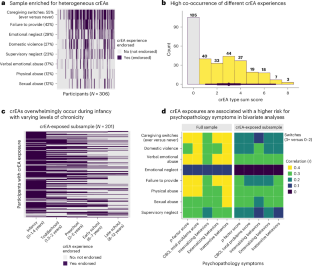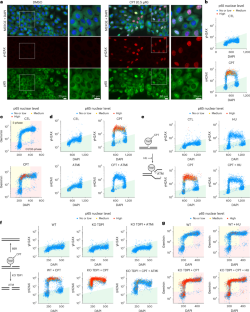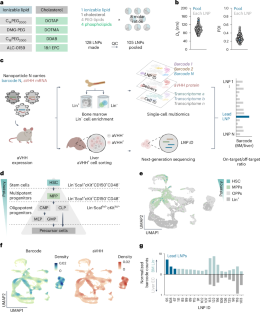2025-01-02 コロンビア大学
<関連情報>
- https://news.columbia.edu/news/which-early-childhood-experiences-most-affect-mental-health
- https://www.nature.com/articles/s44220-024-00355-6
子どものメンタルヘルス問題の最大のリスクに関連する養育上の逆境を特定するための機械学習 Machine learning for identifying caregiving adversities associated with greatest risk for mental health problems in children
Anna Vannucci,Andrea Fields,Charlotte Heleniak,Paul A. Bloom,Chelsea Harmon,Aki Nikolaidis,Ian J. Douglas,Lisa Gibson,Nicolas L. Camacho,Tricia Choy,Syntia S. Hadis,Michelle VanTieghem,Mary Dozier,Michael P. Milham & Nim Tottenham
Nature Mental Health Published:02 January 2025
DOI:https://doi.org/10.1038/s44220-024-00355-6

Abstract
Developmental and experiential heterogeneity associated with caregiving-related early adversities (crEAs) poses a major challenge to identifying replicable, generalizable findings. Here conditional random forests evaluated the importance of unique crEA experiences for estimating risks to mental health in 306 children, 6–12 years of age, with heterogeneous crEA experiences (different forms of caregiver-involved abuse and/or neglect or permanent/substantial parent–child separation). The better that crEAs improved the accuracy of symptom estimates in held-out, never-before-seen children, the more important and generalizable they were considered. Here we show that earlier timing and longer duration of crEAs was especially important for elevated general psychopathology (p-factor scores). The mere presence (versus absence) of crEAs was more valuable for estimating symptom risk than were specific adversities in a broad sample. Specific adversities became more important when only looking within the crEA-exposed subsample, with adversities of an interpersonal-affective nature being the most likely to increase transdiagnostic symptom risk. Concurrent consistent caregiving also had high importance, motivating consideration of later-occurring environmental experiences in future studies of early adversity.

